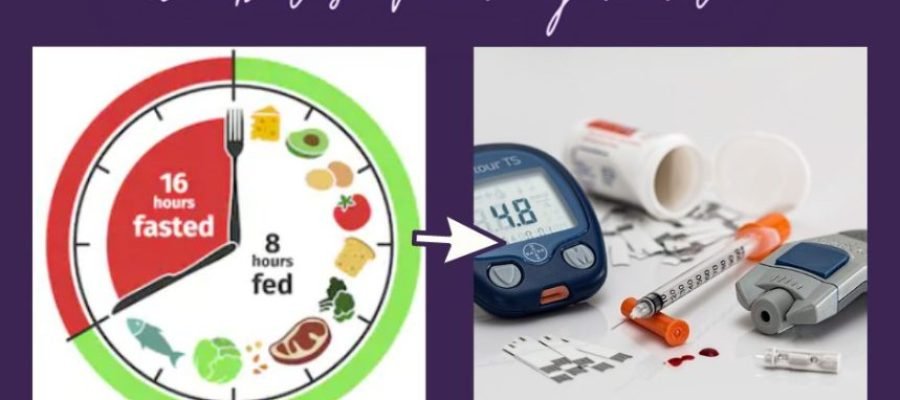“Nobody should die of a lifestyle disease, fast it out!”
I read this comment in a popular Facebook group for Intermittent fasting, and I must say that I was super intrigued. This woman had successfully controlled her blood sugar level. In fact, her doctor declared her diabetes-free after undergoing several assessments.
Like any other person, I was left wondering, what if there was a way to reverse diabetes and associated complications e.g. hypertension and heart disease? How happy would you be if you stopped taking medication and even shed excess weight?
It’s that glow and expectation that has led millions of people across the globe trying out Intermittent fasting as a way of weight loss and blood sugar management.
In this article, we’re going to focus on the benefits of intermittent fasting commonly abbreviated to IF to a diabetic and explore some of the reasons why health practitioners are yet to prescribe it as a method of blood sugar control.
Type 2 Diabetes is a lifestyle disease caused by insulin resistance; an important hormone that helps in blood sugar regulation by signaling cells to take more glucose from the blood. Resistance occurs when the body is unresponsive to insulin which then results in high blood sugar and high insulin because the body feels the need to produce more insulin to force the sugar into the cells.
Some of the causes of Insulin resistance include:
- Excess body weight
- Physical inactivity
- Consuming high calorie/high sugar foods
- Chronic stress
- A lot of belly fat
While diabetes type 2 poses chronic health complications, scientists are yet to find a cure for it. This leaves most diabetics managing their blood sugar levels through lifestyle changes to incorporate balanced diets, exercises, and insulin medication. Some opt for weight loss surgeries because, of course, most type 2 diabetic cases result from excessive body fat, especially around the belly area.
IF is a safe and effective way to shed extra pounds even the stubborn belly fat. There are different IF programs, but the key is having a window where you can eat and then fast to allow your body to burn glucose and fat. This may not be a magic pill that works for everyone as some people find it hard to fast, and their bodies may react differently to fasting.
Research conducted by DR. Jason Fung revealed that Intermittent (occasional) fasting has the potential to reverse insulin resistance and therefore reverse type 2 diabetes.
According to him, if you decide to fast, you need to cut out processed foods and sugars, and eat more vegetables, fruits, fiber-rich foods, and healthy proteins. Four hours into your fast, insulin secretion stops, and the body starts to use glucose as a primary source of energy to support your organs. After 8 hours, then the body is forced to utilize the stored fats to keep you going. All this time, the pancreas does not produce insulin and thus reducing the insulin levels in the blood and allowing weight loss.
If followed for several weeks, then you are able to lose extra weight and maintain healthy blood sugar and insulin levels, which is required to stop insulin treatment.
The logic is to alternate between longer and shorter fasts which will aid weight loss. Once you attain your ideal weight, then maintain it with a balanced diet and exercise.
With all the aforementioned benefits, why are doctors not prescribing IF as a method of diabetes management?
Well, research conducted on rats revealed that they are able to lose weight, improve blood pressure, cholesterol, and blood sugar levels. However, very little research has been done on humans to prove the safety of IF for diabetics.
Although we have testimonials from folks who’ve managed to get off medication, medical practitioners feel like these are just pointers to more research. Other researchers argue that fasting can cause hypoglycemia.
The Verdict
Intermittent fasting is an effective way to lose excess body fats and thus lower insulin. The positive benefits go beyond weight loss to chronic lifestyle disease prevention, stress management, and even maintaining healthy cholesterol. All these are important benefits for a diabetic as they help control blood sugar.
Before you start any IF program, we recommend having this discussion with your doctor and monitoring your blood sugar regularly. Please have the medication handy should you need it.
Please review our business at: Google Yelp Facebook
To learn more, please visit our Member’s Area to access our subscribed content.
Did you know you can work out and exercise with a trainer at your home, office, hotel room, or anywhere in the world with online personal training?
Like us on Facebook/Connect with us on LinkedIn/Follow us on Twitter
Make sure to forward this to friends and followers!






